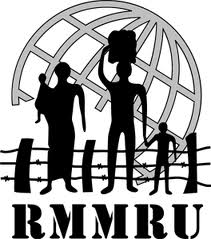SUCCESSFUL INTERVENTION PATHWAYS FOR MIGRATION AS ADAPTATION (SUCCESS)
Time frame: July 2023 – September 2026
Supported by: IDRC & FCDO
Climate change adaptation interventions are commonly designed for current resident populations, thereby not accounting for the mobility and immobility of exposed and marginalised people. Migration is a common and often effective risk spreading adaptation yet is frequently portrayed as a failure to adapt. Hence, there is unmet demand for evidence and metrics to support improved migration outcomes for effective and inclusive adaptation.
This project therefore seeks to generate new knowledge on the evaluation of adaptations that critically involve migration, mobility and immobility. The design involves gathering data on the effectiveness of migration-as-adaptation interventions across South Asian countries with new data collected using social science methods in multiple localities. It will co-create, jointly with action partners, a set of evaluative guidelines for successful interventions that meets key criteria for success including, justice and rights, intersectional vulnerability, and long-term climate resilient development pathways.
The project generates knowledge on appropriate metrics and appropriate pathways for sites under planned relocation, immobile and left behind populations, and for urban migration destinations, in Bangladesh, Bhutan, India and Nepal, across mountain, coastal, dry land and urban social-ecological contexts, selected to represent all major dimensions of the mobility spectrum.
Positive development outcomes will spring from evidence-based best practice to facilitate safe mobility for significant populations who aspire to move and integrate in destinations, and through learning across planning and civil society stakeholders in the four study countries. The consortium seeks to engage and disseminate such findings across the Global South through capacity building, engaging with scholars and practitioners worldwide.
Specific research objectives are
- To provide evidence-based, socially-differentiated best practices on migration as adaptation that facilitates safe voluntary mobility and successful integration in destinations, for both migrant and host communities.
- To develop responses that assist adaptation and boost in situ resilience in at-risk social-ecological systems, for populations who are immobile or left behind.
- To identify and mainstream the gendered and social equity dimensions of urban and rural development policies and interventions towards migration as adaptation.
- To promote learning and co-created scenarios for migration-as-adaptation across planning, policy and civil society stakeholders in migrant origin and destination localities.
- To strengthen the capacity of a broad range of civil society actors to discuss and promote inclusive and equitable migration as adaptation that preserves rights and dignity of people on the move.



